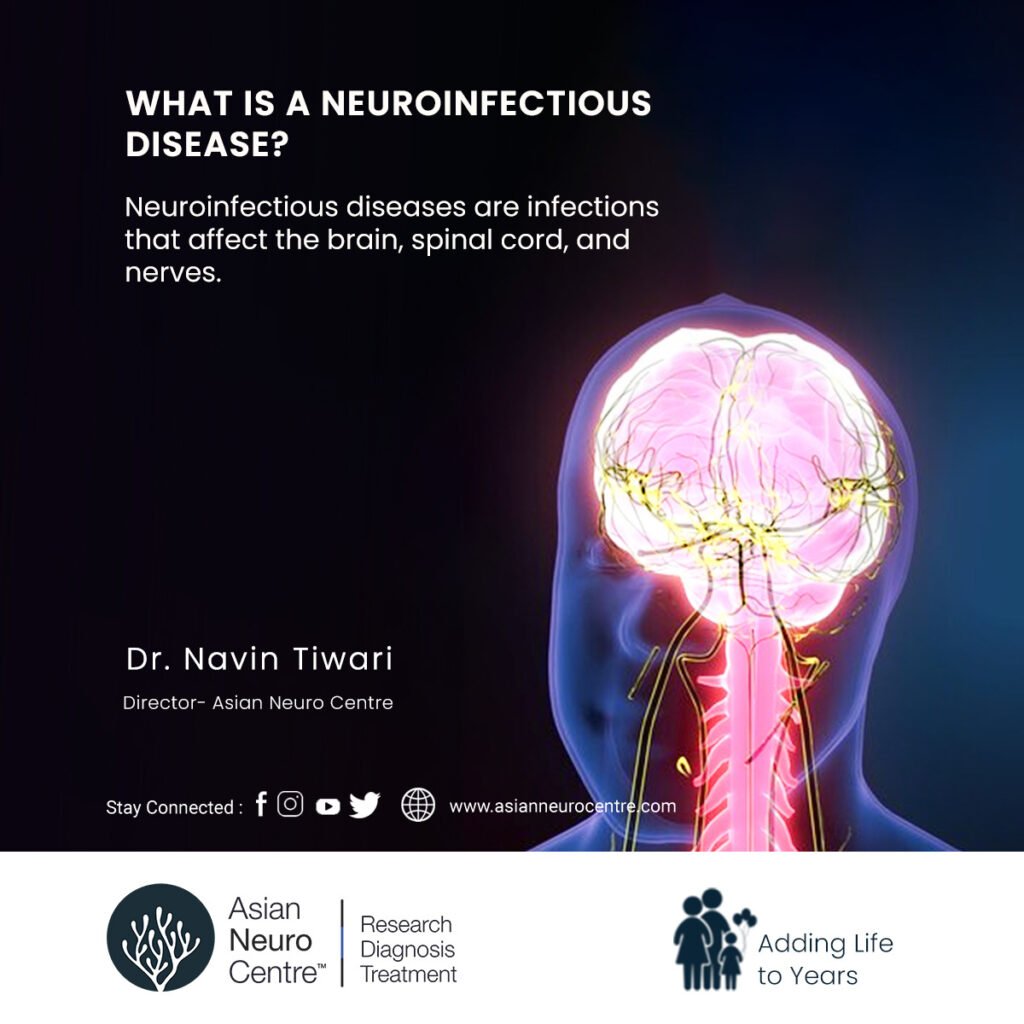- Have any questions?
- 911 12345 29
- info@asianneurocentre.com
What is a Neuroinfectious Disease?, Causes, Symptoms, Treatment
What is the Difference Between Neuroinfectious Diseases and Other Neurological Disorders?
January 3, 2025Is There a Permanent Cure for BPPV?
January 23, 2025What is a Neuroinfectious Disease?
A neuroinfectious disease is a type of infection that affects the nervous system-that is, your brain, spinal cord, and nerves. These may be due to several kinds of pathogens, including viruses, bacteria, fungi, or parasites that may cause serious health issues.
Neuroinfectious diseases are critical conditions of the nervous system. Therefore, the diseases must be taken care of in terms of their causes, symptoms, and treatment for recovery and retaining health in general.

Causes of Neuroinfectious Disease
The following are possible sources of neuroinfectious diseases:
- Most of the common viruses, especially herpes simplex virus, and West Nile virus, invade the nervous system in viral infections.
- Bacterial infections: Infection with any type of bacteria, like Neisseria meningitidis or Listeria monocytogenes, can cause meningitis and encephalitis.
- Fungal infections may be caused by several fungi; however, they predominantly occur in individuals with poor immune status.
- Parasitic infections include those caused by the attack of parasites in the central nervous system, such as those responsible for toxoplasmosis.
Symptoms of Neuroinfectious Disease
Symptoms of neuroinfectious diseases depend on a certain type of infection and may be manifested by:
- Headaches: Often severe, may be persistent.
- Fever: A nonspecific response to infection.
- Confusion or altered mental status, such as being unable to think clearly or understand.
- Seizures: Sudden attacks of uncontrolled electrical activity in the brain.
- Stiff neck usually occurs and is a sign of meningitis.
- Weakness/numbness: A condition of restricted mobility or sensation in the limbs.
Treatment of Neuroinfectious Disease
Neuroinfections may be treated as follows, depending on the type of infection and its seriousness.
- Antiviral Medications: In the case of viral infections, certain antiviral drugs can be used.
- Antibiotics: Many bacterial infections at times require the administration of antibiotics in order to clear the bacteria.
- Antifungal Medication: There is a fungal infection, so antifungals will be a must in the treatment. Supportive care may include pain medicines, fluids, and even rest to help the body recover.
- Hospitalization: In addition, treatment may involve hospitalization, which may subsequently be necessary, especially in more advanced cases that require closer observation and intervention.
Dr. Navin Tiwari
Consulting Neurologist
